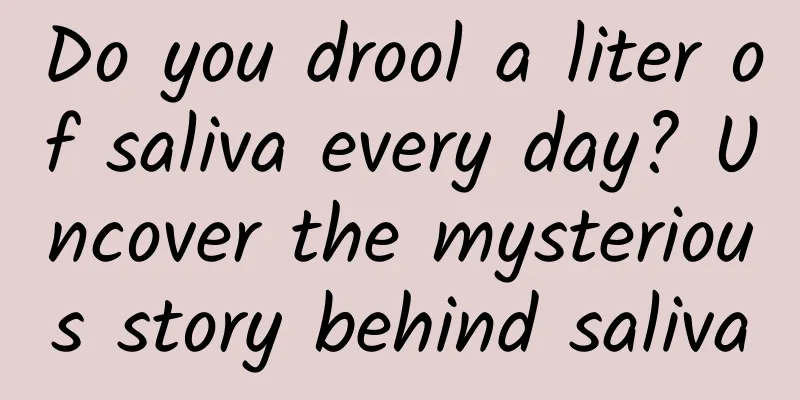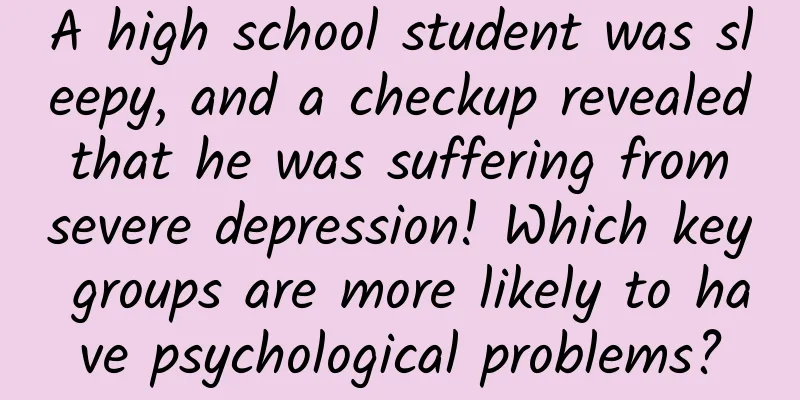The crabs I bought have "pinholes". Did they get injected with something? The September Science Rumors List is here →

|
1. Can I dissolve the powder in the capsule in water and give it to my child? Rumor: If children have difficulty swallowing capsule-type medicines, you can remove the capsule shell and mix the medicine powder with water for the child to drink. The truth: Don’t do this. Capsules are not just for “packing” drugs for easier swallowing. They can improve the stability of drugs, cover up bad smells, reduce drug irritation, and even control the release rate of drugs. In addition, some drugs need to reach the intestines before being dissolved and absorbed. Capsules can protect drugs from being destroyed by stomach acid. Opening the capsules may destroy these functions, resulting in poor drug effects or increased side effects. In addition, some people open the capsules in order to reduce the amount of drugs that should be used for adults and give them to children. However, children are not smaller versions of adults. Using drugs without the guidance of a doctor may have adverse effects on children’s health and even cause danger. 2. Can massaging the cervical spine cure cervical spondylosis? Rumor: If you have cervical discomfort and need to relax, you can find a massage therapist and just press until you feel comfortable. The truth: Massaging the cervical spine can indeed relieve some symptoms of cervical spondylosis, but not all types of cervical spondylosis are suitable for massage. Sometimes blind massage can make the condition worse. For patients with cervical spondylosis, massage needs to be done with extra caution. Especially when the patient suffers from cervical spondylosis myelopathy, segmental instability of the cervical spine, or developmental cervical spinal stenosis, the spinal cord is already under slight pressure. In this case, if the masseur massages the spine vigorously, it may bring a short and violent impact to the spine, causing the spinal cord to be instantly compressed more, thereby causing a sharp deterioration of nerve function and may even cause permanent high-level paraplegia. 3. Is it because mooncakes have too many preservatives that they last for a long time? Rumor: Mooncakes last a long time because they contain a lot of preservatives, so you should buy mooncakes with a short shelf life, which contain even fewer preservatives. The truth: It is not true. The shelf life of mooncakes is affected by many factors. There are three main reasons why some mooncakes can be stored for a long time: first, they are baked at high temperature during the production process and have undergone multiple sterilization treatments, and the microorganisms are basically killed; second, the current packaging technology is constantly improving, the product is sealed intact, and nitrogen is often filled and deoxidizers are added; third, most mooncakes are high-sugar and high-oil foods with low moisture content, which is not conducive to the growth and reproduction of microorganisms. Therefore, even if no or only a small amount of preservatives are added, some mooncakes can be stored for a long time. Therefore, the preservative content cannot be inferred based on the shelf life. Moreover, the use of preservatives within the scope specified by the national standard is safe in itself. Therefore, there is no need to worry about it. You don’t have to worry about buying qualified mooncakes through formal channels. 4. Will long-term consumption of MSG harm your health? Rumor: MSG is chemically synthesized and can cause cancer and affect your health. The truth: It is safe to take MSG as a cooking auxiliary seasoning in moderation. Its main ingredient is monosodium glutamate, which is the sodium salt of glutamate. Glutamic acid is one of the basic components of protein and exists in many ingredients. As a condiment, the glutamate we take in through MSG is far less than the glutamate we take in through our daily diet. Moreover, in the modern food industry, MSG is usually made from grains such as corn, and is produced through fermentation or bioengineering technology. After being made into monosodium glutamate, it is purified and processed. This process is similar to the production of wine, vinegar, and soy sauce. But it should be noted that MSG contains sodium, and people who need to control their blood pressure should pay attention to controlling their intake. In addition, a small number of people who consume excessive amounts of MSG at one time may experience discomfort such as dry mouth and headache. This sensitivity is called MSG symptom syndrome. Studies have shown that it only affects a small number of sensitive people, and the impact is short-term and disappears within an hour. 5. Can hand sanitizer replace washing hands with running water? Rumor: Hand sanitizer contains disinfecting ingredients that are enough to clean your hands and can replace running water for rinsing. The truth: No. Hand sanitizers mainly play a disinfecting role, and their cleaning and decontamination effects are poor. They are suitable for use when going out and when washing with water is inconvenient. However, when there is dirt on your hands, hand sanitizers cannot remove the dirt, and you should wash your hands with running water. At present, the disinfecting ingredients of commercially available hand sanitizers are mainly ethanol and quaternary ammonium disinfectants. Pathogens such as hand, foot and mouth virus and norovirus are not sensitive to ethanol. To prevent the above pathogens, running water is still the first choice, and hand sanitizer or soap should be used to wash your hands. In addition, when using hand sanitizer, use an amount about the size of a coin, apply it evenly on your hands, including the palms, backs of hands, fingers, and finger joints, and rub them thoroughly for 20 seconds. 6. The crabs I bought have "pinholes". Are they artificially pierced with something? Rumor: The crabs you buy have "pin eyes" because they are injected with water or glue to increase their weight or injected with stimulants to increase their vitality. The truth: This is not the case. The crab shell is very hard. If you want to penetrate the shell and inject liquid, you will inevitably destroy the crab shell. Once the crab shell is destroyed, the osmotic pressure of the environment in which the crab's internal organs are located will change dramatically, which will quickly lead to the death of the crab. For merchants, the loss outweighs the gain. These small holes are usually the result of crabs colliding with each other during fishing and transportation. The transparent gelatinous substance in the crab's body is actually crab paste, which is the secretion of the male crab's accessory glands. It is not only nutritious but also delicious. As for the claim of injecting hormones or stimulants, it is not true. These drugs are ineffective for crabs and will also damage the water quality and cause the crab to die. Crab farming requires good water quality, and any harmful substances will affect its survival. About the Science Rumors List Released by the China Association for Science and Technology, the list is reviewed by experts every month. Based on criteria such as timeliness and harmfulness, hot rumors are selected for special interpretation and pushed across the entire network. Jointly published: Scientific rumor-busting platform, China Internet Joint Rumor-busting Platform, "Study to Strengthen the Country" learning platform Supported platforms: Weibo rumor refutation, Toutiao rumor refutation, Tencent Jiuzhen, NetEase Health, Toutiao Health, Baidu Knows, Douyin Scientific rumor debunking: Sponsored by the China Association for Science and Technology, the National Health Commission, the Ministry of Emergency Management, the State Administration for Market Regulation and other ministries and commissions, guided by the Central Cyberspace Affairs Commission, and jointly created by national societies, authoritative media, social organizations and scientific and technological workers, it aims to effectively improve the dissemination, guidance and influence of rumor debunking information, so that rumors can stop at the wise and let science outrun rumors. List of review experts (In order of the number of strokes of surname) Ruan Guangfeng, Deputy Director of Kexin Food and Health Information Exchange Center Zhang Yu, researcher at Chinese Center for Disease Control and Prevention, national health science expert Chen Peng, Associate Professor, Department of Communication, Nankai University Tang Qin Director of the Science Popularization Department of the Chinese Medical Association National Health Science Popularization Expert Han Hongwei, Researcher at the National Food Safety Risk Assessment Center This article is produced by "Science Facts" (ID: Science_Facts). Please indicate the source when reprinting. |
<<: The Chinese ancestors that we are familiar with in textbooks actually looked like this!
>>: How many steps are needed to build a hydroelectric power station in Africa?
Recommend
How to create Alipay mini program and join Taobao mini program?
Q: How to create Alipay mini program and join Tao...
Community operation: 2 steps to make a good community operation plan!
Nowadays, everyone is talking about community ope...
OPPO Wi-Fi 6 Router AX5400 Review: Good-looking and powerful
With the development of smart homes, there are mo...
Does Shenzhen Mini Program Mall need to apply for a business license?
Can an e-commerce business license be used to ope...
Troubleshooting starts with error code 406
background A while ago, I was suddenly informed b...
What happened to Wuhan purchasing 360 tons of soybeans to fight floods? Why purchase 360 tons of soybeans to fight floods?
What happened to Wuhan purchasing 360 tons of soy...
520 is indeed a big day! But it’s not what you think…
Two little bees flying among the flowers... What ...
Foot bath and massage mini program function, how much does it cost to make a foot massage shop WeChat mini program?
Due to the impact of the epidemic, many companies...
Dinosaurs are not completely gone. Look up if you don't believe me.
Dinosaurs are known to almost everyone. These pre...
These 10 behaviors may seem fun, but they are actually very harmful to your health!
Everyone has some little hobbies in life that mak...
The operation model of increasing 100,000 followers at 0 cost: budget ≠ resources
We are at a loss in the anxiety of zero budget, b...
How can the photography industry break through the market through Mayu advertising?
At present, the photography industry has develope...
The first dog to go into space died peacefully after seven days of orbiting the Earth?
The first life on Earth to enter space was not a ...
10 tips for video marketing promotion!
It is estimated that by 2022, video traffic will ...
Which copywriter is the best at leveraging the Labor Day campaign?
It’s not Labor Day yet. The chat mode of " w...






![Compiled APP promotion and operation knowledge [Android application market promotion activities]](/upload/images/67cc3e9d2f00e.webp)


